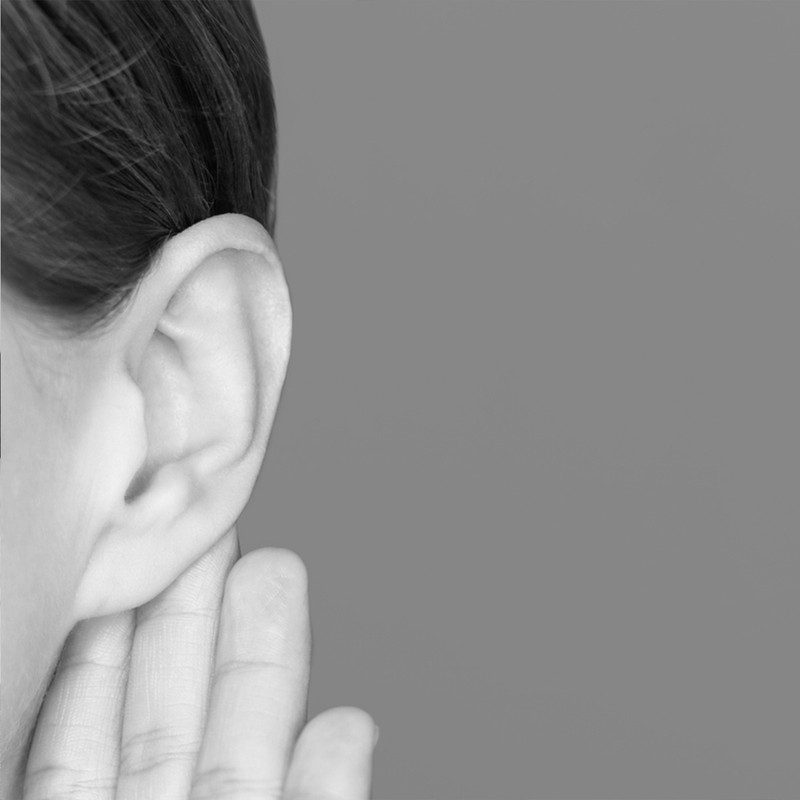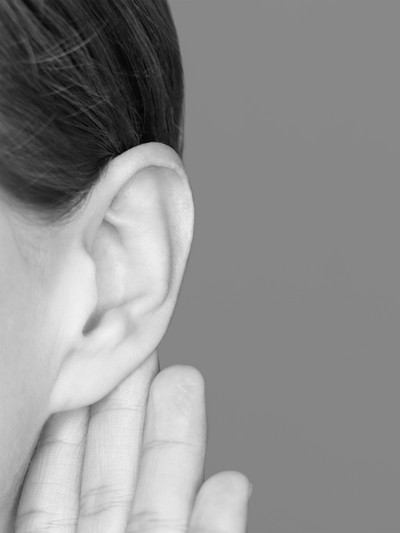

How To Improve Hearing & Prevent Hearing Loss
Firstly, how exactly does ageing affect your hearing?
“As with anything in the body, systems become less efficient as we age and this applies to our ears, too. This can come down to simple wear and tear of our ears, especially given exposure to sound and loud noise over our lifetime, as well as a decrease in blood supply to certain areas of the brain and the multiple complex systems which make up how we hear wearing down. As we age, our brains can also become less efficient at interpreting and acting on the signals we hear.” – Cathy Colclough, audiologist at Sussex Audiology Centre
What sounds become trickier to hear with age?
“As we age, high frequencies tend to be the first to be lost as they are processed in the initial part of the cochlea, and this part of the ear is more subject to wear and tear. Birdsong is a sound that can get lost especially if it’s at the higher frequency end of the scale, including species such as warblers, sparrows and waxwings. We are born with 16,000 inner and outer hair cells which have one job – to transmit vibrations to our brain where they are decoded as sound. Between 30 and 50 percent can become damaged before you would even notice an issue with your hearing, but once the damage is done it can’t be reversed.” – Feraz Ashraf, audiologist at Boots Hearingcare
What are some of the first signs you may notice?
“People tend to lose their hearing first in the higher pitches and then it will migrate downward. These high pitches are super important when it comes to understanding speech, which is why a lot of people say they can hear that someone is talking but can’t understand what is being said. If you are finding it challenging to hear people in social situations, this could be a sign your hearing is declining.” – Dr Kathleen Wallace, audiologist and Loop ambassador
How can you test your own hearing at home?
“The simplest way to test yourself is to question whether you can hear well in all situations. Is it difficult to converse across the room? Can you watch TV without raising the volume or following subtitles? Do you struggle in groups? These are all signs of a mild loss. There are online hearing tests but they are not always accurate.” – Cathy
Are some online tests better than others?
“Yes, and there have been huge advancements in technology that have allowed for different ways to evaluate your hearing more conveniently. This can be using an app like Mimi or SonicCloud to do a hearing test, completing a full screening and following up with an audiologist via a video call on a platform like Tuned. There are also audiologists that offer in-home services.” – Kathleen
Can hearing loss ever be restored?
“Most hearing loss cannot be reversed through medicine and surgery, but the impact can be vastly improved by audiology services and well-fitted hearing aids, especially when hearing loss is age-related. Your ability to use the hearing you have will improve if you treat any existing loss and early intervention is always better. There is evidence to suggest hearing loss that is ignored is a risk factor for dementia.” – Cathy
How often should you get your ears checked?
“Everyone should have a baseline hearing test. I see so many people that haven’t had their hearing evaluated since primary school. Once you have had an initial test, you should get tested annually, especially if you have any degree of hearing loss. If your hearing is looking good, you still want to check in on your hearing, perhaps every other year. Untreated hearing loss can lead to many issues, ranging from depression and social isolation to reduced quality of life, so should never be ignored.” – Kathleen
What are your treatment options?
“If a hearing test shows you could benefit from a hearing aid, be open to talking with your audiologist about your options to find the best solution for you. This will take into account the level of your hearing loss, the size of your ear canal and lifestyle. The most common type of hearing aid is known as a ‘receiver’ in the canal – the benefits of these are that your ear isn’t blocked off and the sound is much more natural. Most hearing aids now have Bluetooth compatibility, too, so you can take phone calls straight from your hearing aid and even listen to your favourite music. Once you’ve been fitted with the right hearing aid for you, the best tip is to wear it all the time. This way your brain will get used to the sound, you don’t have to regularly put them in and take them out, and you can hear well all day.” – Rob Ormerod, head of audiology at Bayfields Opticians and Audiologists
The Experts Share Their Dos And Don’ts…
DO…
Listen To Loved Ones
“Pay attention to family and friends who may notice changes in behaviours before you do. If they are pointing out you’ve started watching the TV louder, are struggling to keep up with conversations or are speaking louder than usual, get checked out.” – Rob
Be Open
“If hearing loss is significant and impacting your ability to communicate with others, then hearing aids may be the best solution. Technology has come on leaps and bounds in recent years and they are more discreet than ever.” – Rob
Think About Your Diet
“Adequate blood flow is important for the functioning of your ears, so a heart-healthy diet and active lifestyle can help maintain your hearing over the years.” – Rob
Lower The Volume
“How we use headphones has become a high priority for audiologists. Our ears are not built for having to tolerate the high levels of noise exposure these technologies create, and certainly not that directly. Lowering the volume on your headphones can make all the difference and, if you are at a loud concert, consider using earplugs.” – Kathleen
Wear Hearing Aids 24/7
“One of the most common mistakes people make is to only wear their hearing aids when they think they need them. This means that, often at home, they miss environmental sounds and important cues like the doorbell or phone. It also makes it more difficult for you to hear in more challenging situations because your ears haven’t adjusted. Remember, constantly wearing hearing aids stimulates your brain and keeps your neural pathways active.” – Cathy
DON’T…
Give Up
“If your hearing has been in gradual decline for years, wearing a hearing aid can take some getting used to as your ears and brain adapt to the improved sound. Persevere and the sound will become natural very quickly. The brain is incredible at adapting to change, but it does take time to adapt and get used to the changes.” – Rob
Ignore Signs
“See a qualified professional immediately if you have any signs of an ear infection or rotary vertigo (the sensation of being on a merry-go-round), as these could be symptoms of a treatable condition. The most common treatable issue we see is a wax blockage that can leave the ear feeling full and can also negatively impact your hearing. This is usually easily resolved by removing the wax through micro suction.” – Rob
Leave It Too Late
“Research shows people wait an average of seven to ten years from when they first notice hearing difficulties to when they actually seek the care of an audiologist. My top tip? Take action sooner. It’s far better to know where you’re at now and actively monitor your condition than to ignore it until it affects your whole life. Earlier intervention has been shown to lead to better outcomes.” – Kathleen
For more information or to book an appoint, visit BayfieldsOpticians.com, LoopEarplugs.com, SussexAudiologyCentre.co.uk and BootsHearingcare.com
DISCLAIMER: Features published by SheerLuxe are not intended to treat, diagnose, cure or prevent any disease. Always seek the advice of your GP or another qualified healthcare provider for any questions you have regarding a medical condition, and before undertaking any diet, exercise or other health-related programme.
DISCLAIMER: We endeavour to always credit the correct original source of every image we use. If you think a credit may be incorrect, please contact us at info@sheerluxe.com.

